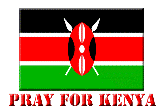A new book the Spirit level, by Richard Wilkinson and Kate Pickett,covers a number of issues.
- Countries with the greatest inequalities of income came out worst: higher levels of mental illness and addiction, higher homicide levels and prison populations, lower life expectancy and higher infant mortality, poorer educational performance, lower levels of trust, higher levels of obesity, more teenage births and lower social mobility.
- The book gives us the evidence at a macro level that is needed to take a stand against inequalities. On a micro level, inequalities permeate every part of our lives. We are aware of where we stand in the pecking order and who is in our league. However it is something we don't readily acknowledge and often feel powerless to do anything about.
- The authors collected data from the World Bank, the World Health Organisation, the United Nations,and the Organisation for Economic Cooperation and Development on health and social problems. They then combined this with data on income differences of 23 of the richest countries, ie the differences between the top 20% and bottom 20% of the population. The UK is amongst the most unequal, with the top 20 % having over seven times that of the bottom 20%.
Opinions of what will work differ widely, Colin Feltham, Professor of Critical Counselling Studies at Sheffield Hallam University feels that Government imposed equality would probably make life better for some, (higher taxes for the too rich) but feels that this doesn't at all get at the widespread greed.
Peter Morrall suggests that impossibilism ie the notion that nothing can be done about global suffering should be tackled.
I think about Poverty, inequality and Kenya , and feel are tasks are insurmountable,and wonder how and where we start.
I often read about some people wishing for Moi to return,and I wonder. The whole question of is it better or worse now, is something I think about. I remember reading on some blog, can't remember where now,(pole), that at least Moi left when he lost.
I just feel like it is more of the same, maybe before we knew what we were dealing with. It was blatant. Almost like you know you are going to die and how, but this time round, you are not quite sure what the death sentence is.
If there is anyone out there who has no idea what I am talking about It's our turn to eat by Michela Wrong, which is a book that is recommended on my sidebar, will fill you in on who are the people who have and have not in Kenya.
The result for me is disillusion with politicians, powerlessness and frustration.
The Economist, has an article about Jacob Zuma and voting for the people's man. South Africa a stable multi party democracy where elections are free, I felt envious that this is something that we lack in Kenya today.
We wait to see what happens to South Africa under Zuma, and whether he will follow in the footsteps of his other African brothers, where government is where you accumulate personal power,and give to your own, forgetting about the rest of the population.
I wonder whether I will go to my grave smiling knowing that the Kenyan society has been cured, or whether I will die of a broken heart?
I just don't get the sense it will happen in my lifetime, and I ain't middle aged yet.That said, I never thought I would live to see Barack Obama as the President of the United States.
So, maybe just maybe change will come to Kenya, but maybe not in my lifetime.





No comments:
Post a Comment